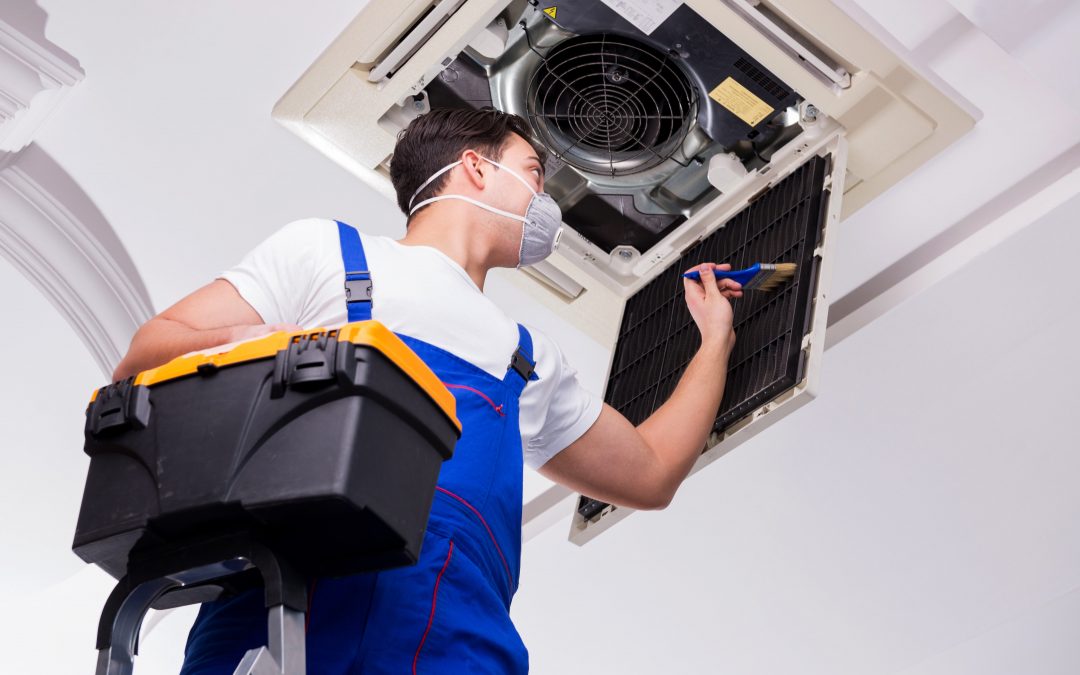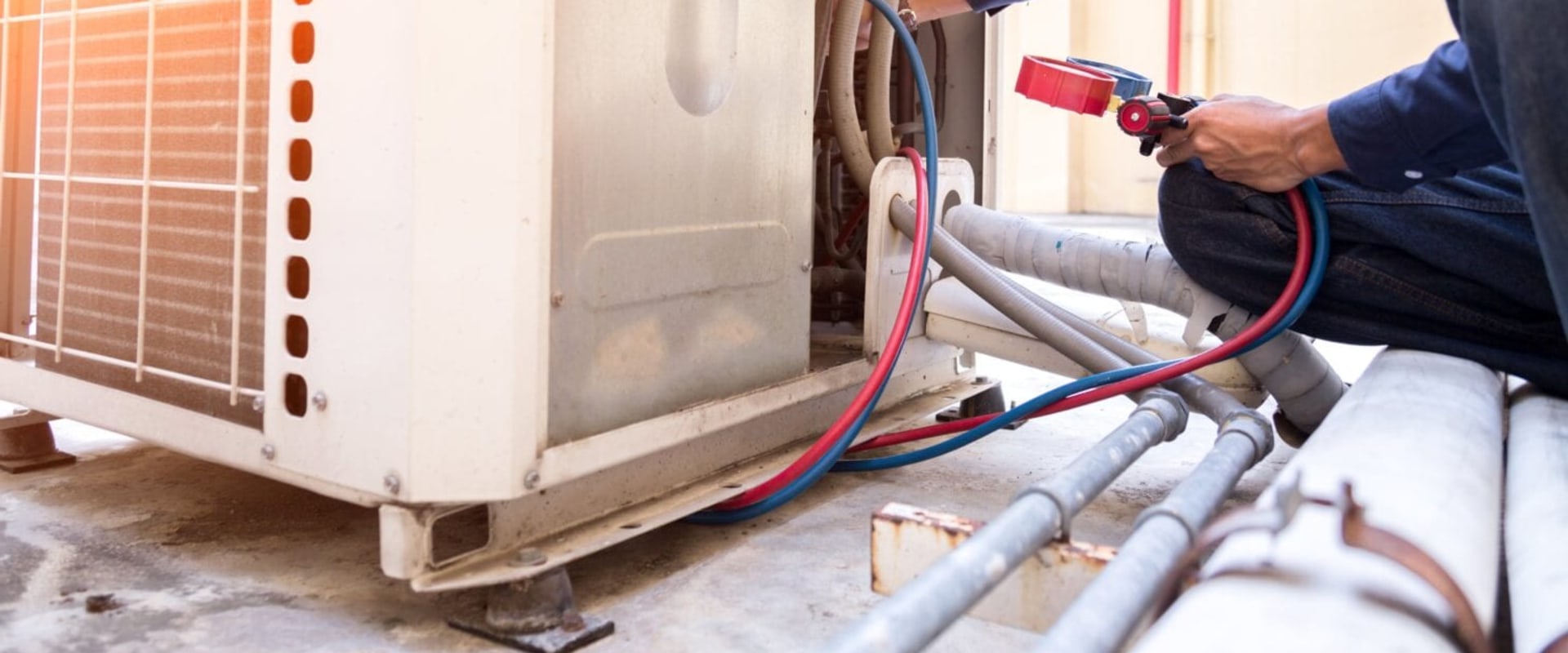Fix your AC fast with affordable air conditioner repair technicians.
Fix your AC fast with affordable air conditioner repair technicians.
Blog Article
How to Enhance Energy Performance With Your HVAC System and Heating System Upgrades
As power prices remain to climb, the value of boosting energy performance via a/c system and heating system upgrades can not be overstated. Reviewing your current system's performance and thinking about energy-efficient options are necessary very first steps. Along with choosing versions with high SEER and AFUE ratings, maximizing thermostat settings and boosting insulation can substantially affect overall effectiveness. However, the trip in the direction of optimizing energy performance does not end there; comprehending the nuances of normal upkeep and its long-lasting benefits is just as crucial. What are the specific strategies that can result in substantial savings and improved comfort?
Analyze Your Current System
Prior to beginning on any upgrades, it is necessary to analyze your present a/c system and heating system to recognize their effectiveness and performance. This first analysis supplies a foundation for determining locations that need enhancement and educates decisions concerning potential upgrades. Begin by checking out the age of your heating and cooling system, as outdated versions might do not have modern energy-saving attributes.

Power intake records will additionally be critical in assessing your system's operational expenses. Take into consideration conducting a professional power audit to obtain a specialist assessment of your system's efficiency.
Upgrade to Energy-Efficient Designs
Upgrading to energy-efficient models is a crucial step in enhancing the overall efficiency of your HVAC system and heating system. These modern units are designed to eat less power while delivering optimum cooling and heating, leading to considerable price financial savings on energy costs and a lowered ecological footprint.
When considering an upgrade, try to find versions that have high Seasonal Energy Performance Ratios (SEER) for cooling and Annual Gas Application Performance (AFUE) rankings for furnaces. These rankings indicate the effectiveness of the units, with higher numbers reflecting better performance. Energy-efficient models typically include innovative technologies, such as variable-speed motors and clever thermostats, which further boost power cost savings.
Furthermore, several energy-efficient heating and cooling systems are equipped with improved insulation and better securing, which minimize power loss and improve interior comfort. furnace repair. While the initial financial investment may be higher, the lasting savings on power prices and possible tax rewards for making use of energy-efficient appliances can counter this cost substantially

Ultimately, upgrading to energy-efficient designs not just adds to a more sustainable future yet also boosts the convenience and effectiveness of your home or company.
Optimize System Setups
To make the most of the efficiency of your heating and cooling system and furnace, it is important to maximize system setups customized to your specific needs. Begin by establishing your thermostat to an energy-efficient temperature. The U.S. Department of Energy advises a wintertime setup of 68 ° F when you are wide awake and reducing it while you rest or are away. In summertime, aim for 78 ° F throughout the day.
Use programmable or wise thermostats that enable you to set up temperature modifications automatically. This ensures your system operates only when essential, reducing energy usage. In addition, guarantee that your system is established to run in the right setting-- home heating in winter season and cooling in summer-- while staying clear of the continual follower alternative unless needed for air flow.
On a regular basis review and adjust settings based upon seasonal changes, occupancy patterns, and details comfort choices. Guarantee that vents and signs up are unhampered, permitting for optimum air flow. Ultimately, take into consideration zoning systems that make it possible for visit this website personalized convenience in various locations of your home, additionally improving effectiveness. By fine-tuning these settings, you can accomplish significant power cost savings while maintaining a comfy living setting.
Improve Insulation and Sealing
A well-insulated home is essential to making check my reference best use of the effectiveness of your a/c system and furnace. Proper insulation minimizes the workload on these systems, consequently saving energy and lowering energy expenses. Begin by examining your home's insulation in areas such as the attic, wall surfaces, and floorings. Insulation materials like fiberglass, foam, and cellulose can significantly improve thermal resistance, aiding to maintain conditioned air inside and outside air out.
In enhancement to insulation, sealing spaces and splits is critical. Pay special interest to home windows, doors, and any kind of penetrations in walls, such as electric outlets and pipes fixtures. Weatherstripping and caulking can successfully seal these openings, preventing drafts that jeopardize your HVAC effectiveness.
In addition, make sure that air ducts are properly insulated and sealed. Dripping air ducts can lead to substantial energy losses, decreasing system efficiency. Utilizing mastic sealer or steel tape to seal duct joints can boost air movement and efficiency.
Set Up Routine Maintenance
Regular upkeep of your HVAC system and heater is necessary for making sure ideal performance and longevity. Throughout upkeep, a qualified professional will certainly clean and change filters, check refrigerant go now levels, inspect ductwork for leakages, and assess total system procedure.
It is recommended to schedule upkeep at the very least twice a year-- as soon as in the spring for the cooling system and once in the succumb to the heating system. furnace repair. Normal maintenance helps preserve consistent interior temperature levels, making sure convenience throughout the year. Additionally, a well-maintained system runs extra effectively, which can lead to visible reductions in power costs
Neglecting upkeep can lead to lowered performance, increased wear and tear, and eventually, system failure. By prioritizing routine service, homeowners can stay clear of unforeseen failures and guarantee their a/c system and heater run at peak performance. Spending in upkeep is a critical action in improving power effectiveness and producing an extra sustainable home atmosphere.
Final Thought
In final thought, enhancing energy effectiveness within HVAC systems and furnace upgrades is necessary for reducing power intake and boosting overall comfort. A methodical approach that consists of evaluating the existing system, spending in energy-efficient designs, optimizing settings, enhancing insulation, and organizing normal maintenance can result in significant advantages. Executing these approaches not just decreases energy bills yet also adds to a much more lasting setting, making it crucial for property owners to focus on these upgrades.
Report this page